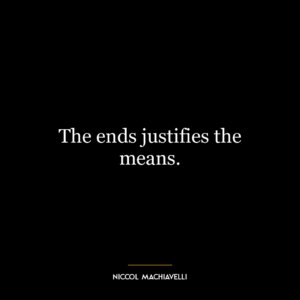He who is the cause of another’s advancement is thereby the cause of his own ruin.
This quote suggests that when you help others to advance, you may inadvertently be setting the stage for your own downfall. This is because in elevating others, you might be giving them the tools, power, or opportunity to surpass or undermine you. The person you’ve assisted might not only become your competition but could also become a threat. This idea is particularly relevant in power dynamics, where the balance of power can easily shift.
However, this quote should not be viewed as a discouragement from helping others. Instead, it serves as a reminder to be wise and discerning in the help you give. It suggests the importance of maintaining a sense of self-preservation and caution, even as you assist others in their rise.
In today’s corporate world, this concept could be seen when a manager trains a subordinate who eventually becomes so skilled and competent that they take over the manager’s job, effectively causing the manager’s downfall. This is why some people might be reluctant to share their knowledge or skills with others for fear of being replaced.
In personal development, this quote could serve as a reminder that while it’s important to help others, one must also ensure their own growth and security. It’s about finding a balance between altruism and self-preservation, understanding that it’s not wrong to guard your own interests while helping others advance. It also encourages individuals to be aware of their actions and the potential long-term consequences, and to act wisely and considerately.












